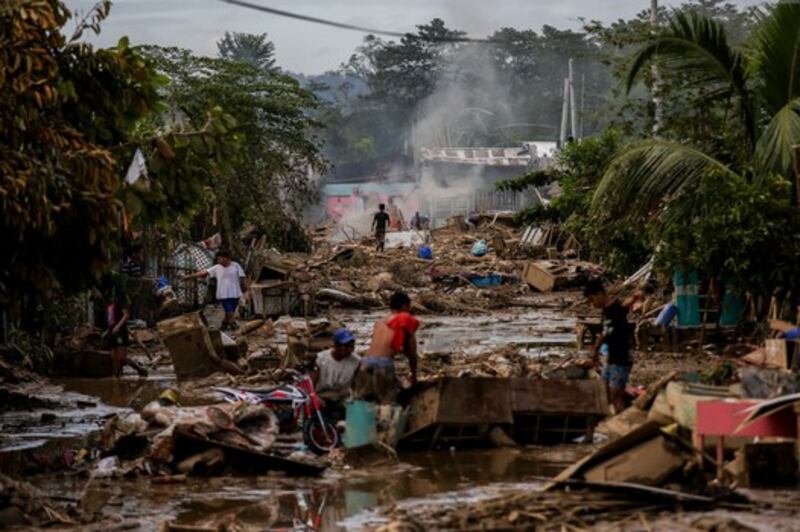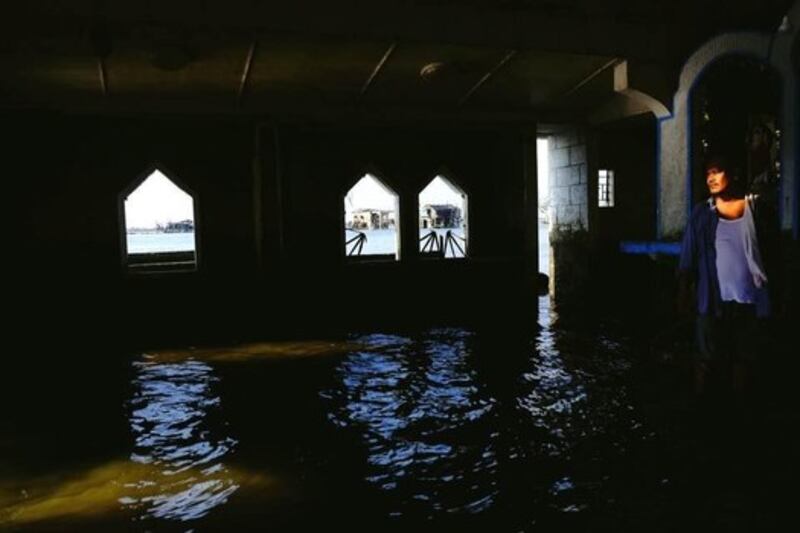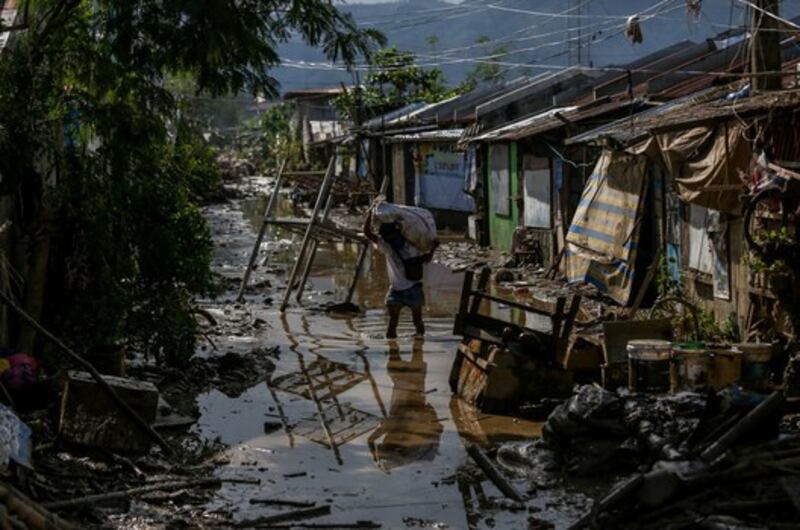The Philippines and other countries achieved some successes at the just concluded global climate talks in Scotland, officials here noted, but environmentalists said not enough was done to limit the global temperature rise to 1.5 degrees Celsius.
Philippine President Rodrigo Duterte said he welcomed the Glasgow Leaders' Declaration on Forests and Land Use to conserve, protect and sustainably manage and restore forests and other terrestrial ecosystems, as it aligned with the Philippines' goals.
“Sustainable and resilient agriculture and forestry are essential for commodity production and achieving the SDGs (sustainable development goals), promoting economic development, reducing poverty, food security, and improving the livelihoods of billions of people,” Duterte said in a Nov. 12 letter to the British government, which hosted the 2021 U.N. Climate Change Conference in Glasgow (COP26).
More than 100 countries signed the declaration on forests, including the Philippines, China, Russia and Brazil.
Phase down vs phase out of coal
COP26 ended on Saturday with nearly 200 countries adopting the Glasgow Climate Pact. In it, they pledged to curb emissions that heat up the planet by targeting fossil fuels – specifically coal – the dirtiest of such fuels.
The pact “calls upon parties to accelerate ... efforts towards the phasedown of unabated coal power and phase-out of inefficient fossil fuel subsidies,” according to the agreement’s final draft.
Earlier drafts, though, talked about a “phase out” of coal, which means stopping the use of coal, but India and China pushed back to change it to “phase down,” which is a gradual reduction in the burning of coal.
The Philippines endorsed the phase down of coal-fired power generation projects but not their phase out.
Its energy ministry said that the Philippines was prioritizing energy security, so it would allow approved projects to go ahead, but not accept applications for new projects. Manila justified its decision by noting that it was not a major greenhouse gas contributor, unlike rich nations.

Coal accounts for more than 50 percent of the country’s energy mix, the government has said. As of the end of last year, there were fewer than 30 coal plants in the archipelago.
Additionally, the Asian Development Bank unveiled at the summit an initiative to phase out coal-fired power plants in the Philippines, Indonesia and Vietnam.
Led by Indonesia, the three nations were among the top four consumers of coal in Southeast Asia in 2019, according to the International Energy Agency.
‘Poor excuse of an outcome’
Meanwhile, environmentalists expressed frustration at COP26’s outcome, saying the Glasgow summit barely kept alive the 2015 pledge to limit a rise in the planet’s temperature. It also did not improve climate financing mechanisms so that rich nations could help poor and climate-vulnerable nations, they said.
The Center for Energy, Ecology, and Development (CEED), a Manila-based environmental think-tank, said “it is apparent that there is much road left to cover to meet the 1.5 degrees C imperative.”
Yeb Saño, the executive director of Greenpeace Southeast Asia and a former climate negotiator for the Philippines, used harsher words.
COP26 “has merely succeeded in candy-coating the appalling lack of concrete actions,” he told BenarNews in a statement.
“Communities at the frontline of the climate crisis, including our youth, should be deeply concerned with this poor excuse of an outcome.”

The Philippines is one of the world’s most climate-vulnerable countries.
“This is aggravated by a lack of a firm stance on fossil fuel phase out, which will put Filipino communities at the losing end of the runaway climate crisis,” Saño said.
Many environmentalists have been calling for Manila to revise its energy plan and include a phase out of coal, not a phase-down. They argue that the government must endeavor to have 50 percent renewable energy in its energy mix by 2030.
The Philippines still does not have a “coherent, national-level solution to the climate crisis” despite the government’s repeated warnings about a climate crisis, Saño noted.
Manila had, however, committed earlier to reducing these emissions by 75 percent by 2030 as its Nationally Determined Contribution (NDC) to the 2015 Paris Agreement.
Climate justice
Marinel Ubaldo, a youth environmental leader and survivor of Super Typhoon Haiyan – the country’s most powerful storm that brought about more than 6,000 deaths – said “climate justice” was forgotten during the global talks in Glasgow.
An average of about 20 typhoons ravage the Philippines yearly, some of them devastating. Scientists say such natural disasters will be more frequent and fiercer as result of the climate crisis.
The Philippines was among the countries worst affected by extreme weather between 2000 and 2019, according to Germanwatch’s Global Climate Risk Index for 2021.
“Filipino communities at the climate frontlines should not be made to wait for justice as every day of delay means another day of compounded human rights harms in the context of climate change,” Ubaldo said in a statement to BenarNews.
“We want them to really acknowledge that they [the carbon majors] are profiting from our suffering.”

In 2015, Ubaldo joined a group of fisherfolk, farmers, fellow typhoon survivors, and civil society organizations, in filing climate-change and human rights petitions to hold investor-owned fossil and cement companies responsible for their contribution to the climate crisis.
“They should be accountable and legally liable for the human rights violations linked to climate impacts,” she said.
“And we want them to change their business practices because we cannot go business-as-usual.”
Froilan Gallardo and Richel V. Umel contributed to this report from Cagayan de Oro, Philippines.
